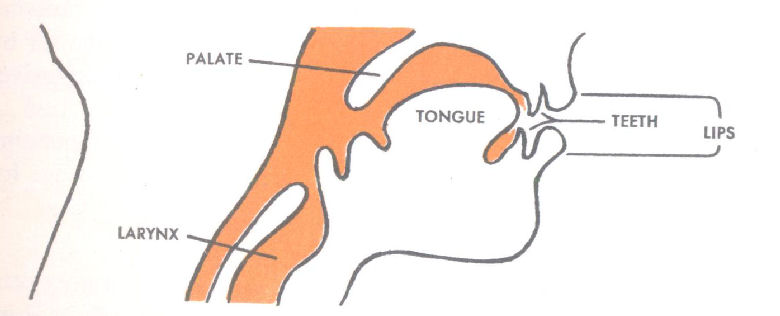261.WHY DO PEOPLE STAMMER?
Probably the most complex and difficult musical instrument that can be imagined is the apparatus in human beings that produces speech! In order for sounds and letters to be formed, this entire apparatus must be used. This includes the abdomen, chest, larynx, mouth, nose, diaphragm, various muscles, tongue, palate, lips, and teeth!
The most important ones used in making spoken sounds are the muscles of the mouth, the palate, lips, and tongue. The only reason we can “play” this instrument so well, is that we learned how to do it when we were most adaptable during early childhood, and because we have practiced it ever since! Obviously, if we can’t play this instrument (the vocal apparatus) with perfect coordination, then something happens to our speech. It comes out wrong and we stammer.
Stammering, or stuttering, occurs when there is a spasm in one or more of the organs that are involved in producing speech. Our production of words is suddenly checked; there is a pause, and this is often followed by a repetition in quick succession of the sound at which we stopped originally.
There are many grades of stammering. It can range from a slight inability to pronounce certain letters or syllables easily, to a condition in which muscles of the tongue, throat, and face are caught in a spasm.
Stammering rarely shows itself before the age of four or five. A child may begin to stammer because there is actually something wrong with one of the organs used in producing sounds. Very often, an emu signal disturbance will cause stammering.
Usually, when a person stammers, it is the “explosive” consonants that give the most trouble . . . “b, p, d, t, k,” and the hard “g.” An explosive consonant is produced by checking the air on its way out, pressing the lips together, then suddenly stopping the interruption of the air by opening the lips. Try to see how you make the “b” sound. It’s explosive!
Stuttering may often be corrected if a person gets instruction in reading and speaking slowly and deliberately, carefully pronouncing each syllable. Of course, if an emotional disturbance is the cause for stammering, special treatment is necessary.



Leave a Reply